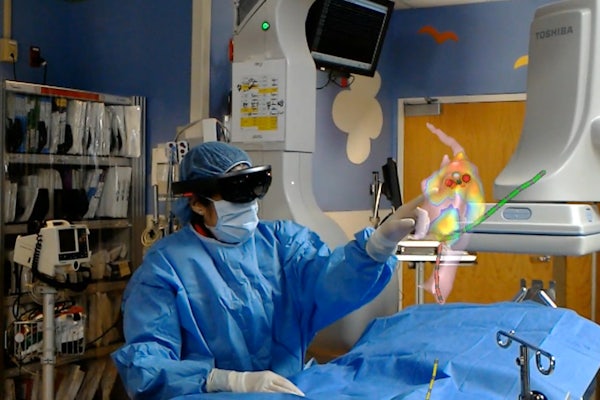SentiAR raises $5.1 million for holographic cardiac ablation guidance system
Technology allows electrophysiologists to visualize cardiac anatomy in hands-free, real-time 3D

SentiAR, a St. Louis-based startup company that developed visualization technologies for surgical applications, has raised $5.1 million in Series A funding that will allow it to accelerate its mixed reality CommandEP system designed to revolutionize the operating room with augmented reality software.
SentiAR technology is based on the developments at Washington University in St. Louis by Jennifer Silva, MD, a pediatric cardiologist and associate professor of pediatrics at Washington University School of Medicine, and Jonathan Silva, associate professor of biomedical engineering. SentiAR’s first product, the CommandEP system, receives imaging data from the electro-anatomic mapping systems and creates a 3D holographic image via SentiAR’s proprietary data flow and visualization algorithms. The patented system presents a 3D image of the patient’s heart showing in real-time the position of the catheters via a wearable headset. The system demonstrated up to 50% improvement in point navigation accuracy in clinical studies.
SentiAR is improving visualization in cardiac surgeries and other interventional procedures. The U.S. Food & Drug Administration cleared the CommandEP system as is the first holographic guidance system to be used during invasive cardiac procedures.
The newest investor, TechWald Holding, joins BioGenerator, the investment arm of BioSTL; Cultivation Capital; VCapital; Neue Fund; QRM Capital and Keiretsu Forum.
The Silvas licensed their technology to SentiAR, which is further developing the augmented reality software. SentiAR has funding from the National Institutes of Health as well as St. Louis investment firms Cultivation Capital and BioGenerator. They have been working with the university's Office of Technology Management to bring the technology to market.





